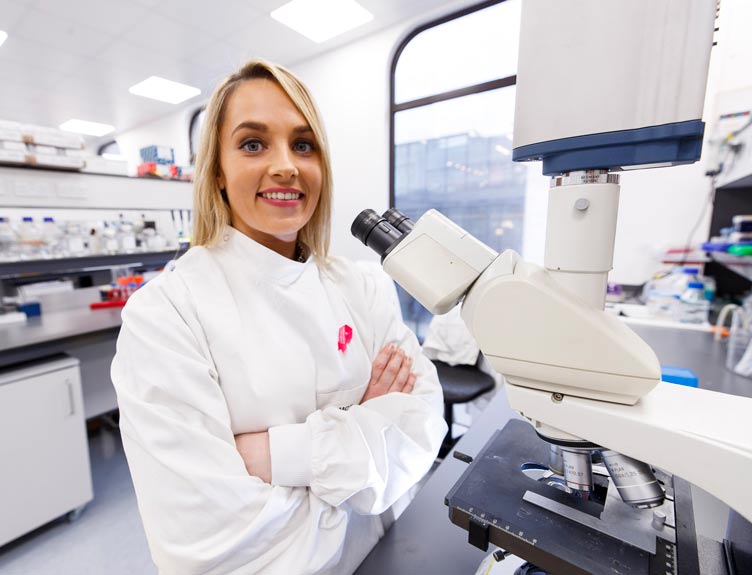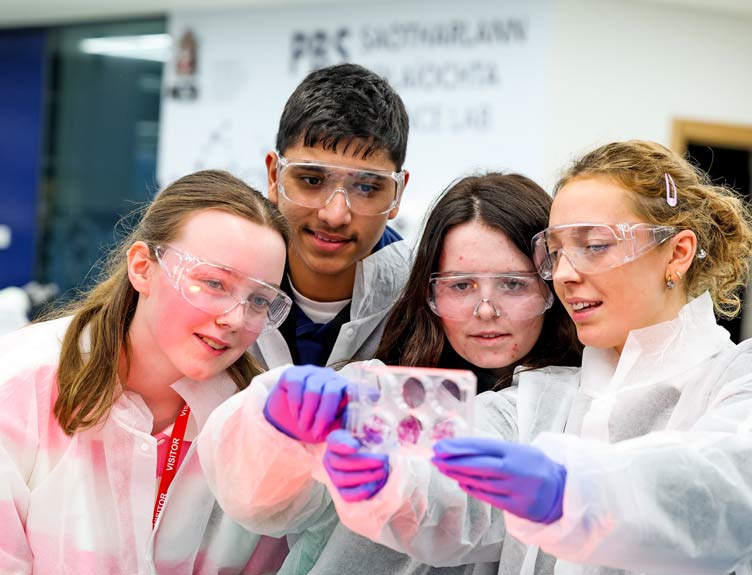Researchers develop potential new treatment approach for breast cancer

Irish cancer researchers have developed a potential new treatment approach for a form of breast cancer, which can be difficult to treat.
The BREAST-PREDICT researchers at RCSI focused on a form of cancer that affects around one in eight breast cancer patients.
The type of cancer targeted – invasive lobular breast cancer – has been understudied to date, leaving patients without tailored treatment options. The discovery in the paper is now paving the way for more personalised treatment of this form of cancer.
Dr Louise Walsh, joint author of the paper with Dr Kathryn Haley, was supervised by Professor Darran O’Connor and Dr Tríona Ní Chonghaile in RCSI. Irish Cancer Society and Breast Cancer Now funded the paper, which is published in Clinical Cancer Research.
Speaking on the discovery, Dr Walsh said: “To know the long hours I spent in the lab have identified novel research findings that will hopefully ensure a better treatment path for patients with this cancer is incredible.
“I’m proud to have played a role in discovering a potential way to target this cancer and improve outcomes for patients in the future. No one is unaffected by cancer in Ireland, but research is the tool we have to ensure that more people can overcome a cancer diagnosis in their life.”
This potential new treatment, a combination approach that comprises two different drugs, blocks molecules in breast cancer cells that control cell growth and survival. The researchers suggest that this treatment approach may be useful for patients who no longer respond to standard therapies. The team are now in the final stages of testing this treatment in the laboratory, supported by additional funding from the Susan G. Komen’s Foundation, before they hope to advance to clinical trial stage.
Invasive lobular breast cancer accounts for roughly one in eight newly diagnosed breast cancer cases. When caught early, treatments with surgery, radiotherapy and/or chemotherapy can be effective, but this type of breast cancer can be more difficult to detect at these early stages. As the cancer advances, it can spread to other organs and become resistant to chemotherapy and hormone therapy.
The new findings were unveiled today as the Irish Cancer Society urges the public to get involved in Cups Against Breast Cancer, a fundraising campaign which aims to raise money for breast cancer research and support services for people affected by breast cancer.
Head of Research at the Irish Cancer Society, Dr Robert O’Connor, said: “New treatment options for this cancer subtype are urgently needed, so this discovery is hugely important for patients who might benefit from a tailored approach to their treatment.
“This research is an example of the vital work of BREAST-PREDICT, made possible by the country’s support of fundraising campaigns like Cups Against Breast Cancer. This October, members of the public can help fund more lifesaving cancer research and free services for people affected by breast cancer by hosting a coffee morning on 11 October.”



